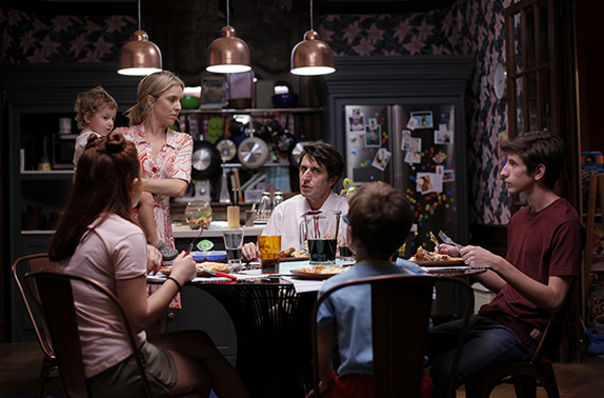The stock jokes illusion
By Thayná Almeida

Still from 10 DAYS WITHOUT MOM
10 DAYS WITHOUT MOM reinforces stereotypes and moves away from criticizing the conservative family.
With a little more than an hour and a half, 10 DAYS WITHOUT MOM is a type of movie far below from what we are used to see in vigorous Argentine cinematography. If it wasn’t for the Spanish, the viewer could think it is a typical American blockbuster.
Ariel Winograd’s feature film tells the story of a father who needs to improvise to take care of his four children while his wife takes a trip to Machu Picchu. What could provide a critic, between the comic and the acid, becomes a repetition of typical cliches seen in the majority of works screened in theaters. 10 DAYS WITHOUT MOM relies on easy jokes such as the father not understanding what his baby son is asking for, or this same father falling off the roof to save his kid.
The film uses a hygienic aesthetic when looking at the upper middle class in Argentina. The script, in turn, seems to be only interested in stereotypical characters: the housewife who becomes tired of the domestic life; the successful father working at a multinational, but absent from his children's lives; and the children who throughout the whole story struggle to approach their father.
10 DAYS WITHOUT MOM fails to bring some complexity to its characters and relies on formulas of the so-called "commercial movie that works," comparable to the worst moments of BIG DADDY (1999) or MEET THE PARENTS (2000). There is no nuance. The viewer doesn’t need to think. The film completely controls what can be seen or seized. It is objective and easy to consume. It doesn’t come close to being a critical eye on the traditional family: the mother will never rebel or question her role as housewife; the father will continue to be applauded for having helped his wife this one time; the children will always be amenable to everything.
It is sad to realize that filmmaking allows representation of this type of familiar configuration without enticing the viewer to question it. On the contrary, it reinforces, uncritically, this status quo.

